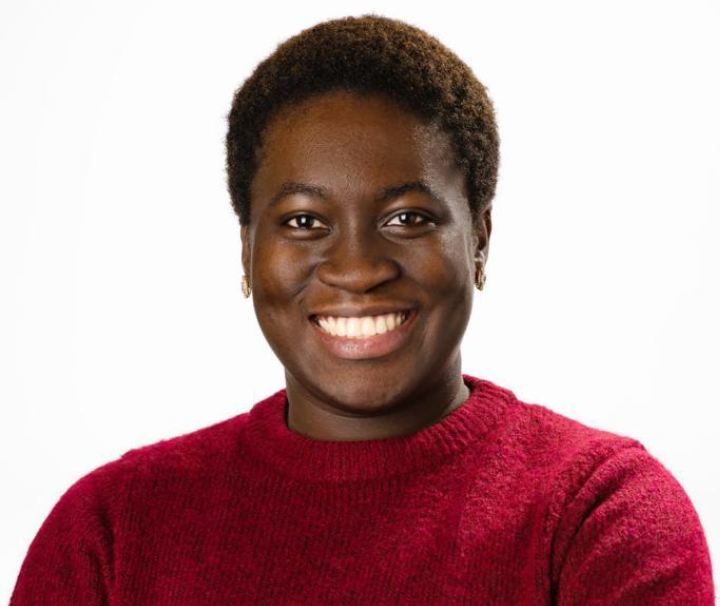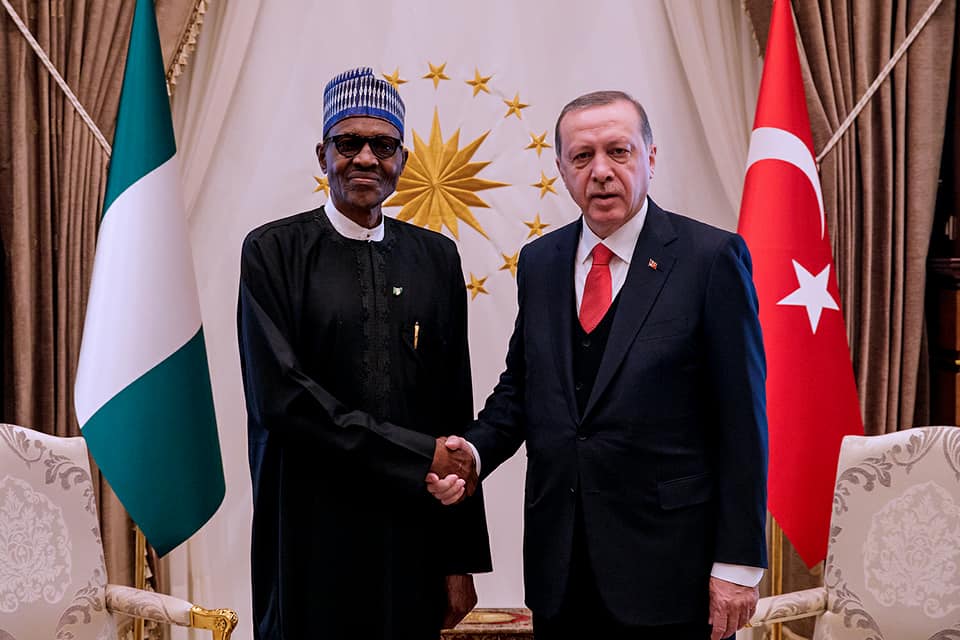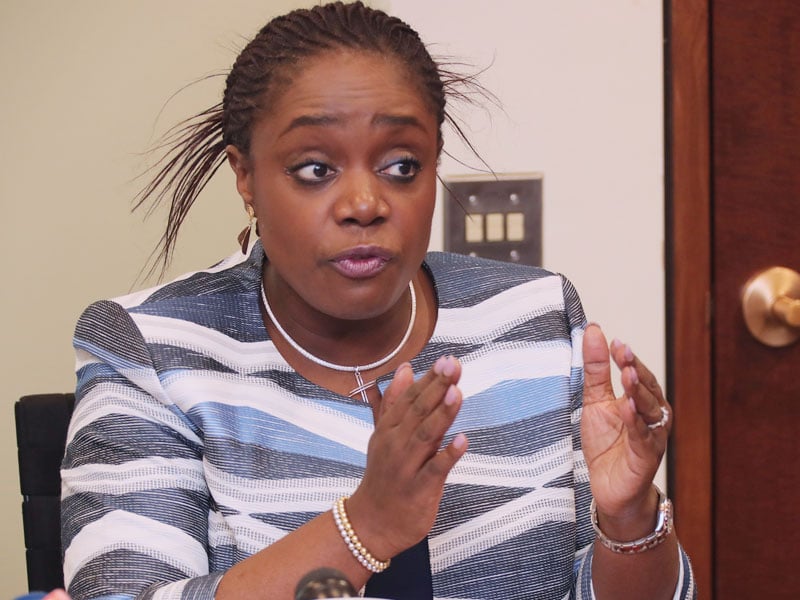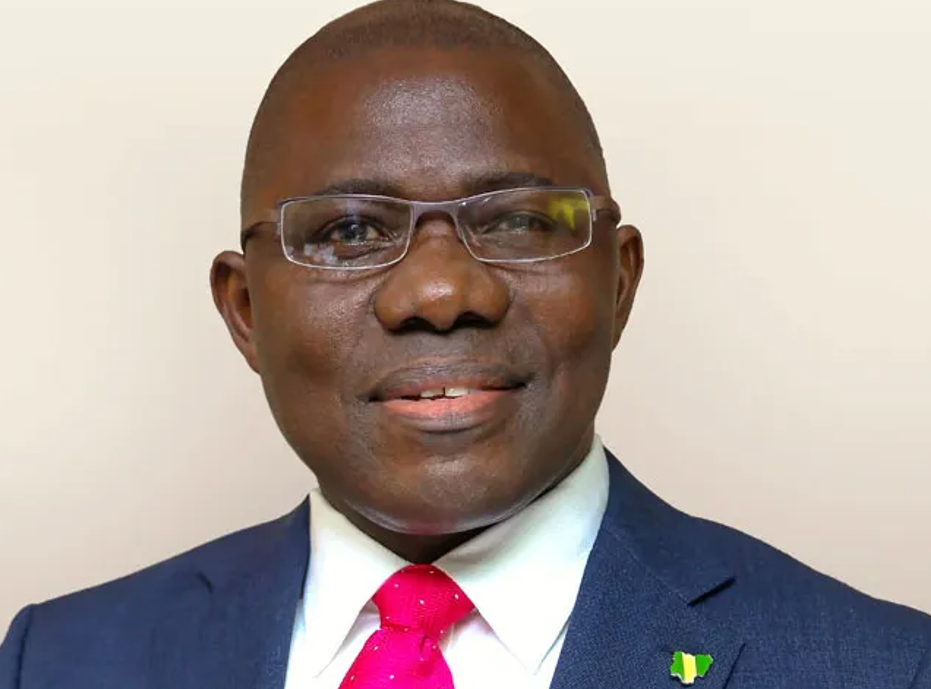“We believe every woman possesses an innate ability to nurture and give substance to whatever is committed into her care. So when she’s empowered, she will not stop with herself alone but will actively seek for ways to empower others and the community at large” – Ejiofor Sandra Akunna.
The above quote is one of the first things you’ll see when you visit the website of the Foundation for Rural Female Education Development in Africa (FORUFEDA). The non-governmental organisation (NGO) founded by Sandra Akunna Ejiofor in 2019 is aimed at ensuring education for every girl globally, starting with her country — Nigeria.
WHO IS SANDRA EJIOFOR?
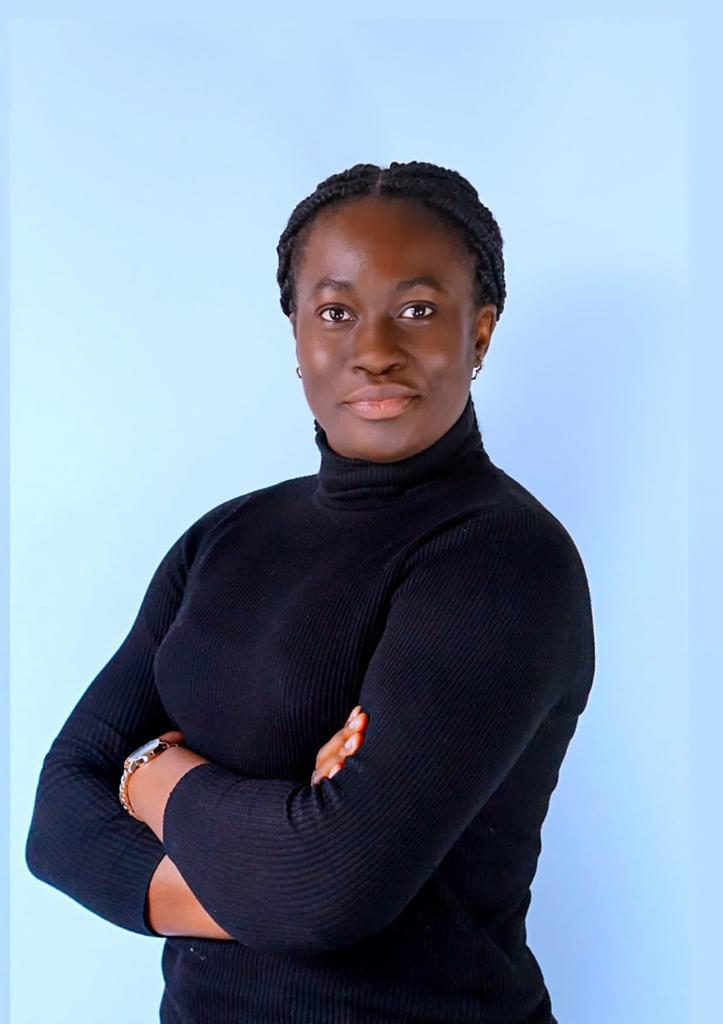
Ejiofor, a 29-year-old Imo state native, grew up in Lagos as the first in a family of five children. She attended Fortune Private School, Ikotun, for her primary education and then proceeded to Living Stone Model College. She has just recently completed her master’s programme at the Berlin School of Business and Innovation (BSBI), Germany.
Advertisement
Before leaving for her masters in 2019, Ejiofor started FORUFEDA to support girl-child education. But prior to starting the NGO, she had always had a passion for humanity from a very young age.
“I’ve volunteered all my life… from the point I knew I could do certain things from a very early age. I joined a team from St. Lawrence, Isheri and after that, I started handling it by myself — going to the prisons, care homes, school of the blind to take care of them,” she said.
This, she said, gave her a huge sense of fulfilment. But in 2018, while returning home from one of her charity events, Ejiofor came across a girl hawking on the streets of Lagos and that changed the course of her journey.
Advertisement
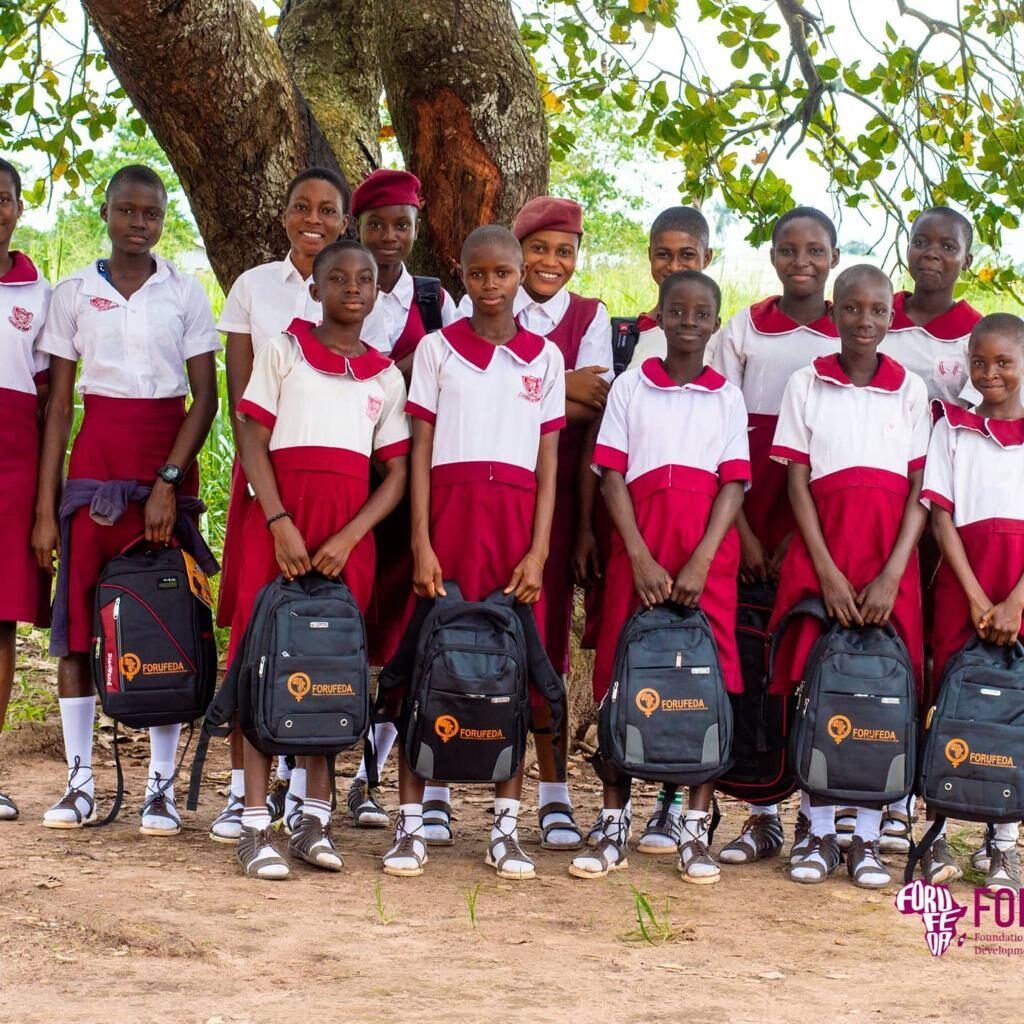
THE JOURNEY TO FEMALE EDUCATION ADVOCACY BEGINS
From that day, Ejiofor took it upon herself to see to it that girls (especially those in rural areas) get an education. In 2019, when she officially started FORUFEDA, it was nothing but a dream come true.
In 2020, the United Nations (UN) said the global gender gap will not close for another 100 years, and in 2021, a report by the World Economic Forum (WEF) put the figure at 135.6 years — that is is how long it will now take to close the gender gap worldwide.
In the report, WEF said the COVID health emergency of 2020 and its related economic downturn impacted women more severely than men, partially reopening gaps that had already been closed. Also, according to the sustainable development goal 5 (SDG5), 10 million girls will be at risk of child marriage in the next decade because of the pandemic.
Advertisement
For Ejiofor, this is not “acceptable”.
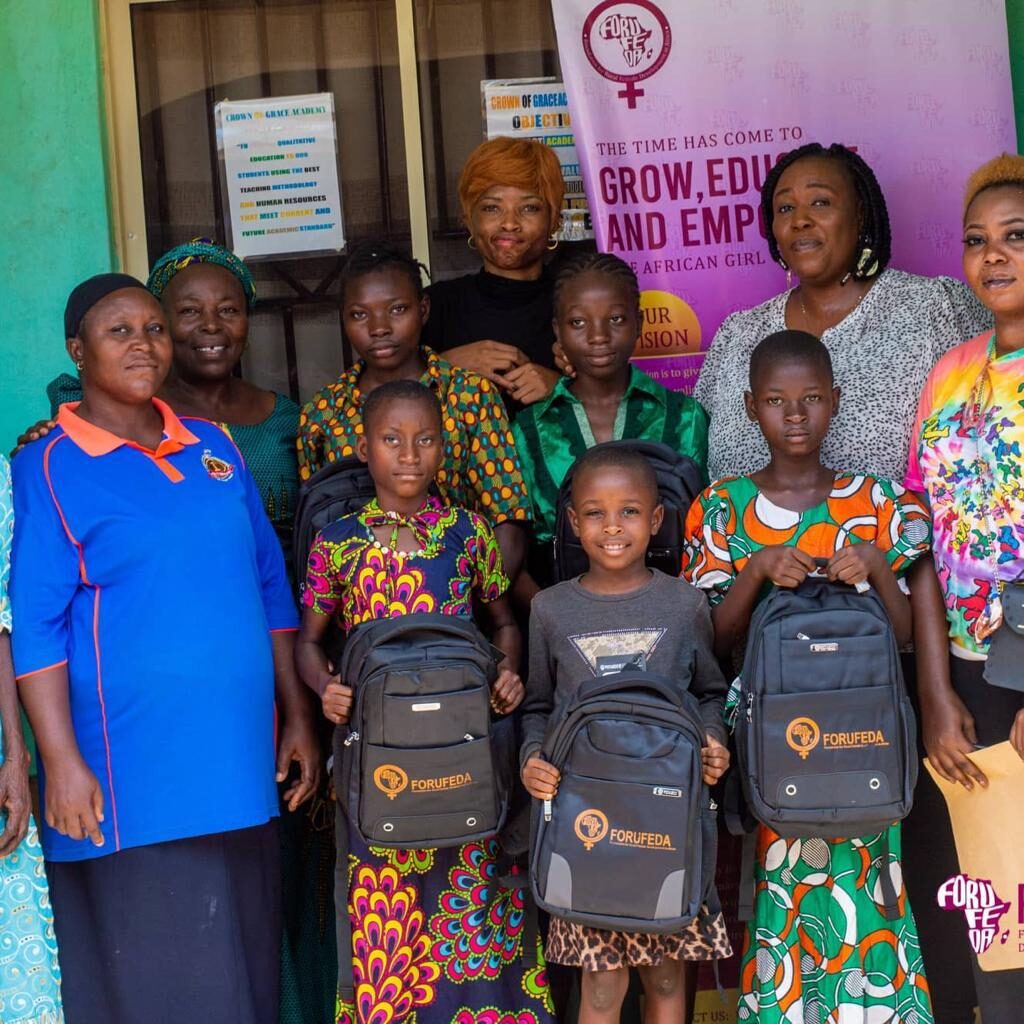
She said FORUFEDA was birthed to see that more girls are sent to school, that early marriages are stopped, that girls have equal opportunities and that they do not have any constraints in achieving their dreams.
So, she set out with the belief that she can “help one girl at a time”.
GIRL-CHILD EDUCATION A HUMAN RIGHT
Advertisement
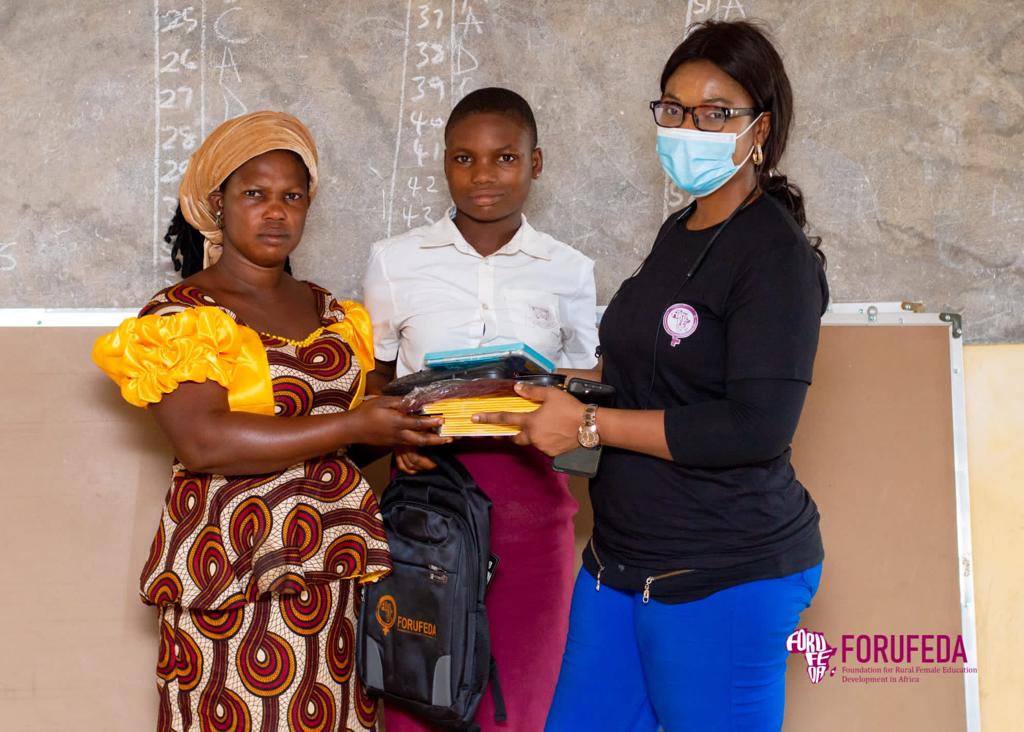
“Educating the girl-child is power. We don’t want them to go to farms; we don’t want them to be married off; we don’t want them to be hawking on the road, abused or talked to anyhow. We want them to go to school. We want to build their confidence. We want to make sure that they are fine even mentally and education-wise,” Ejiofor said.
During the 16 days of activism which runs annually from November 25 to December 10, Pauline Tallen, minister of women affairs, reechoed Ejiofor’s stand, while commemorating the International Day for the Elimination of Violence Against Women.
Advertisement
Tallen said child marriage can be identified as a form of violence against women, adding that “the girl-child needs to be educated so that she would know how to take care of herself, her family and people around her”.
So far, through FORUFEDA,Ejiofor has been able to send 20 girls (aged between 7 and 16) back to school and is bearing the cost of their education.
Advertisement
According to her, she sometimes identifies the girls herself and visits their families to request that they allow FORUFEDA to enrol them in school. Her organisation also has informants in communities across the country who help identify out-of-school girls.
NGOS FILLING THE GAP
Advertisement
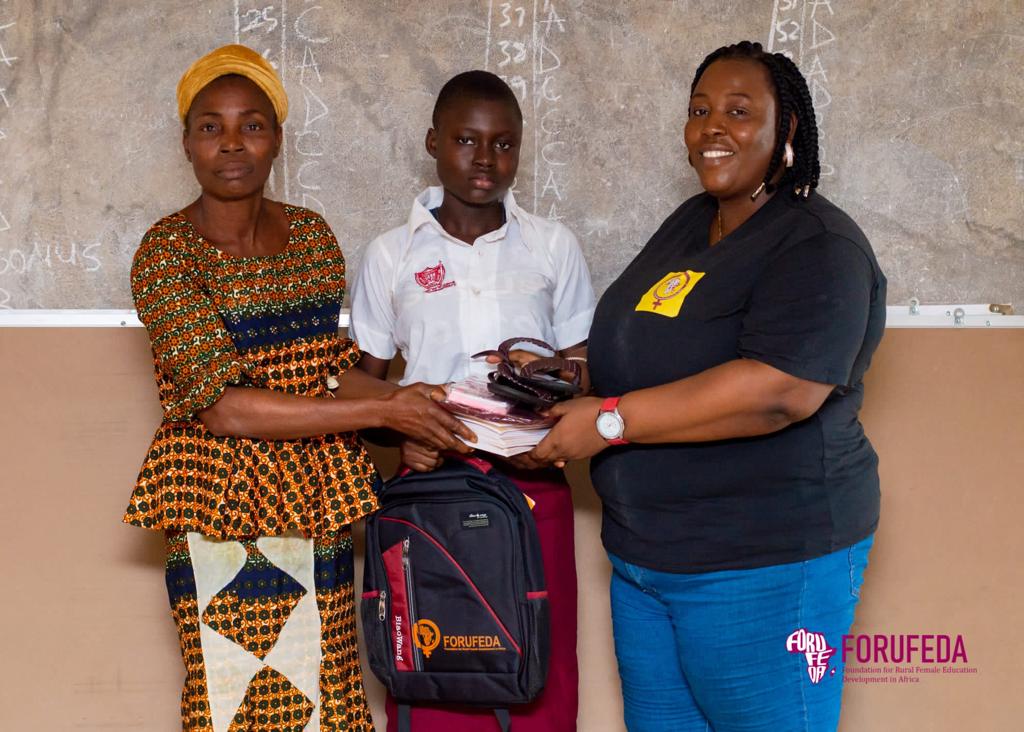
Chioma Agwuegbo, executive director of TechHerNg, a platform that promotes technology knowledge exchange among women, said NGOs like FORUFEDA are doing the Lord’s work.
“The presence of so many civil society organisations in Nigeria plugging in the gaps speaks to the several failures in government because CSOs should exist to hold the government accountable, they should exist to remind government of what they are supposed to do. No CSOs are supposed to do what we are having to do now in Nigeria,” she said.
She said Nigeria’s poverty problem has made it such that parents have to choose between sending their children to school or having them engage in menial jobs like hawking.
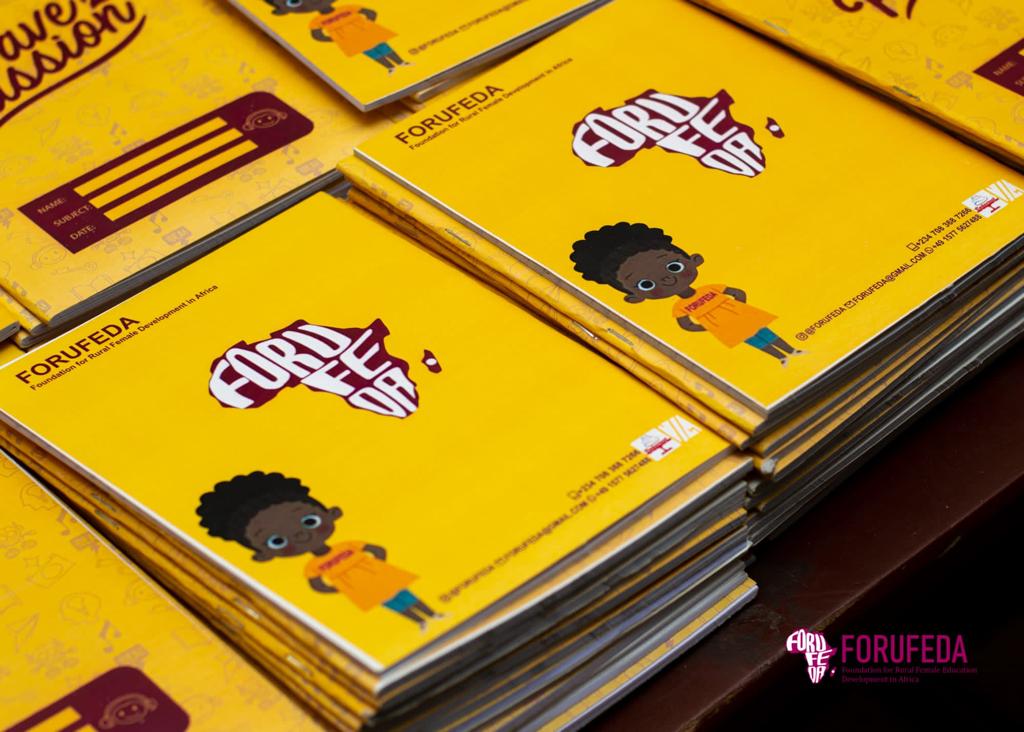
This, she said, makes Ejiofor‘s work important because, without such NGOs, Nigeria will be headed towards a “future where we will see a higher number of educated boys than girls”.
“I think everyone’s work is valuable. I think that everyone who is doing something to platform women and girls and even foster protection of women and girls is really commendable,” she said.
“She should find other people doing something similar in order to collaborate to extend the work she is already doing. Nobody can work alone. She should keep on the work that she is doing and also prioritise self-care.”
FUNDING, A HUGE CHALLENGE
But doing this “very important work” has not been without challenges for Ejiofor. She told TheCable how doors have been shut while seeking funds.
“Funding has been a huge challenge. I’ve knocked on a lot of doors, applied for loans, asked for sponsorships. Doors were shutting on me such that at some point, I had to dig a deep chunk into my own personal earnings,” she said.
However, during her master’s programme, Ejiofor said her NGO idea won the BSBI start-up competition and got a prize of €1,000 which she said helped her reach even more girls.
“The funding really helped a lot. It was like the startup fund. We were able to reach over 500 girls. We organised outreaches and sensitisation programmes in schools where we encouraged girls to stay in school,” she said.
“We distributed education paraphernalia to them – like books, pens, school bags, math sets, dictionaries and even sanitary towels.”
But Ejiofor said more funding is needed. With some of the girls due to write the Joint Admissions and Matriculations Board (JAMB) examination in 2022, she hopes that she receives funding to see the girls through university.
But even if she doesn’t, Ejiofor says nothing will stop her from achieving her dream of seeing that the girls go to school even if it means dipping into her own earnings.
“I can’t begin to imagine what the world would have been like without women like Ngozi Okonjo-Iweala, Chimamanda Ngozi Adichie, Folorunso Alakija and others who got an education,” she added.
“This is why I don’t want this dream to die and I want people to see that this dream is valid because educating a girl child will make the world a better place.”
Add a comment
